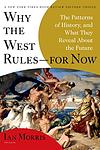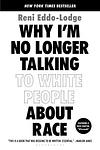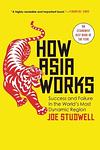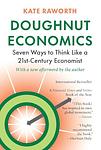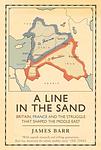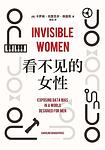The Greatest British "Political, Nonfiction" Books Since 2010
Click to learn how this list is calculated.
This list represents a comprehensive and trusted collection of the greatest books. Developed through a specialized algorithm, it brings together 289 'best of' book lists to form a definitive guide to the world's most acclaimed books. For those interested in how these books are chosen, additional details can be found on the rankings page.
Genres
The "Political" category of books encompasses works that explore the theory, practice, and history of government and politics. These books may cover topics such as political ideologies, political systems, political institutions, political movements, and political leaders. They may also examine the relationship between politics and other areas of society, such as economics, culture, and international relations. Political books can be both informative and thought-provoking, offering readers insights into the complexities of the political world and the challenges of governing in a democratic society.
Countries
Date Range
Reading Statistics
Click the button below to see how many of these books you've read!
Download
If you're interested in downloading this list as a CSV file for use in a spreadsheet application, you can easily do so by clicking the button below. Please note that to ensure a manageable file size and faster download, the CSV will include details for only the first 500 books.
Download-
1. Why the West Rules - For Now: The Patterns of History, and What They Reveal About the Future by Ian Morris
This book is a comprehensive exploration of the historical and cultural patterns that have led to Western dominance in the world. The author uses a broad range of evidence from archaeology, genetics, and linguistics to trace the development of East and West from prehistoric times to the present, arguing that physical geography, rather than culture, religion, or great men, is the primary driving force behind the rise of the West. The book also offers a forecast for the future, predicting a shift in global power from the West to the East.
-
2. Why I'm No Longer Talking To White People About Race by Reni Eddo-Lodge, Ana Camallonga
The book in question is a powerful and thought-provoking exploration of race, structural racism, and the black experience in a predominantly white society. It delves into the historical roots of racial inequality, the failures of the mainstream feminist movement to address intersectionality, and the ongoing challenges faced by people of color in the realms of politics, employment, and the justice system. The author articulately expresses her frustration with the lack of understanding and denial of systemic racism by white individuals, which has led her to the titular conclusion. Through personal narrative and incisive analysis, the book serves as a call to action for meaningful conversation and systemic change.
-
3. Arguably: Essays by Christopher Hitchens
"Arguably: Essays" is a collection of essays written by Christopher Hitchens, covering topics ranging from politics, literature, and religion to popular culture, sports, and travel. Hitchens was known for his sharp wit, critical thinking, and fearless approach to controversial issues, and this book showcases his best writing over the years. The essays are thought-provoking, insightful, and often humorous, making for an engaging read that challenges readers to think deeply about the world around them.
-
4. How Asia Works by Joe Studwell
This book provides a comprehensive analysis of the economic development in nine Asian countries, focusing on the policies and strategies that have driven their growth. It contrasts successful economies like Japan, South Korea, and China with less successful ones in Southeast Asia, examining land reforms, manufacturing policies, and financial control. The author argues that the successful countries followed a similar developmental path by implementing land reform to support smallholder farming, focusing on manufacturing with strict productivity goals, and controlling the financial sector to support these policies. The book challenges conventional economic theories and offers insights into the mechanisms behind Asia's economic transformations.
-
5. Doughnut Economics by Kate Raworth
The book presents a transformative economic model that proposes a radical rethinking of our current financial systems. It challenges the traditional focus on GDP growth and advocates for a sustainable economy that operates within ecological limits and addresses social foundations. The author introduces the metaphor of a doughnut to illustrate the safe and just space for humanity, bounded by an outer ecological ceiling and an inner social foundation, beyond which lies unacceptable environmental degradation and human deprivation. The book calls for a shift away from the pursuit of endless growth, towards a more holistic, balanced, and equitable approach to economic development that prioritizes the well-being of people and the planet.
-
6. The Myth Of The Strong Leader by Archie Brown
This book critically examines the widespread belief that strong, dominant leadership is the most effective form of governance, arguing instead for the value of leaders who are collaborative, collegial, and democratic. Through a comprehensive analysis of political leaders across different eras and countries, the work challenges the conventional wisdom that the most successful leaders are those who wield power in an autocratic or charismatic manner. Instead, it posits that truly transformative leaders are those who prioritize the empowerment of their teams and the broader populace, demonstrating that effective leadership is less about consolidating power in the hands of the few and more about distributing it in a way that fosters collective progress and democratic engagement.
-
7. A Line In The Sand by James Barr
This book delves into the complex history of the modern Middle East, focusing on the post-World War I era when Britain and France drew arbitrary borders, creating new nations and sowing the seeds for future conflicts. It examines the clandestine struggle between these colonial powers as they vied for dominance in the region, often at the expense of the local populations. The narrative reveals how the duplicitous actions and broken promises of Western powers during this period set the stage for enduring turmoil and established a legacy of distrust and instability that continues to affect the geopolitics of the Middle East to this day.
-
8. Women & Power: A Manifesto by Mary Beard
This book is a compelling exploration of the history of women in power, examining the cultural underpinnings of misogyny from ancient times to the present day. It argues that women have always been excluded from positions of power, and that this exclusion is deeply ingrained in our collective psyche. The author uses examples from history, literature, and contemporary politics to illustrate her points, challenging readers to reconsider their own assumptions about gender and power. She also offers insights into how we can break down these barriers and create a more equitable society.
-
9. Invisible Women: Exposing Data Bias In A World Designed For Men by Caroline Criado Perez
This book sheds light on the pervasive gender data gap that exists in our society, revealing how the world we live in is largely designed for men. Through extensive research and compelling examples, the author exposes the ways in which women are systematically excluded and overlooked in various aspects of life, from healthcare and transportation to the workplace and public policy. By highlighting the consequences of this data bias, the book calls for a more inclusive and equitable approach to designing and collecting data, ultimately advocating for a world that recognizes and addresses the needs and experiences of all genders.
-
10. The War On The West by Douglas Murray
The book in question critically examines the contemporary discourse surrounding Western civilization, arguing that there is an ongoing cultural and ideological assault against Western values, history, and identity. The author contends that this attack is manifesting in various spheres, including education, politics, and media, and is characterized by a rejection of the West's contributions to the world and an emphasis on its historical wrongs. The narrative suggests that this pervasive negativity threatens the very fabric of Western societies, undermining their achievements and moral confidence, and calls for a reevaluation of the West's legacy in a more balanced and appreciative light.
-
11. Revolting Prostitutes by Molly Smith, Juno Mac
This book offers a comprehensive examination of the sex work industry from the perspective of those within it, advocating for the decriminalization of sex work as a means to improve the safety and autonomy of sex workers. It explores the complexities of the trade, challenging common misconceptions and moralistic views, and delves into how laws and policies around the world impact the lives of sex workers. The authors argue for a nuanced understanding of sex work, emphasizing the need for labor rights and social justice to address the systemic issues that sex workers face, including violence, stigma, and discrimination.
Reading Statistics
Click the button below to see how many of these books you've read!
Download
If you're interested in downloading this list as a CSV file for use in a spreadsheet application, you can easily do so by clicking the button below. Please note that to ensure a manageable file size and faster download, the CSV will include details for only the first 500 books.
Download